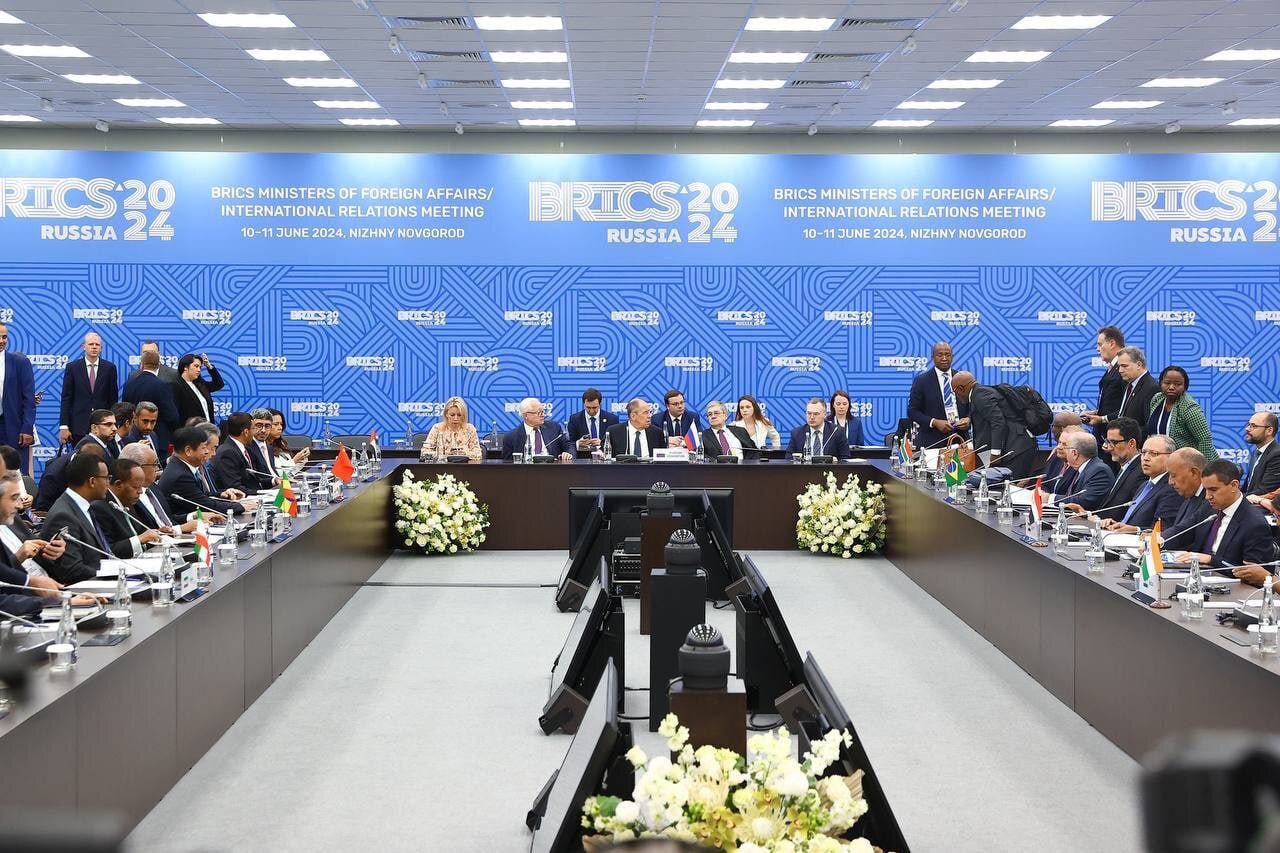Iran and the BRICS outlook

MOSCOW – The BRICS Foreign Ministers' meeting will be held today, Monday, in Nizhny Novgorod, Russia.
Ali Baqeri Kani, the acting Foreign Minister of Iran, will lead our country's delegation at this meeting. This is the first BRICS Foreign Ministers' meeting since the Islamic Republic of Iran joined the group.
Another joint meeting is scheduled for Tuesday, June 11, where, in addition to the main members, 15 other countries, known as the friends of BRICS, have also been invited to participate.
The BRICS group is a political-economic coalition focused on coordinating major and complex global economic issues. The first BRICS summit was held in 2009 in Yekaterinburg, Russia, with the participation of China, Russia, Brazil, and India. South Africa joined the coalition in 2010, changing the group's name from BRIC to BRICS. Over the past fifteen years, BRICS has become an important coalition of rapidly growing economies and a leading force among southern countries in challenging global economic and financial systems.
Recent actions by member countries, such as countering the dominance of the dollar and opposing unilateralism in the global economy and trade, have been well-received by many nations. Consequently, numerous countries have expressed interest in joining or collaborating with BRICS through partnerships or the BRICS Plus initiative. Currently, BRICS holds the largest share of the world's GDP based on PPP, surpassing other economic blocs, including the G7.
BRICS encompasses over a quarter of the world's land area, about 45% of the global population, 36% of the world's GDP, and 25% of global exports. What sets BRICS apart from other global coalitions is that, despite having different goals and interests in international competition, the member countries are united by their primary objective of seriously reforming the global system, and maintaining the cohesion necessary for a sustainable group and alliance. In fact, BRICS has the legal frameworks to establish a powerful economic entity outside the G7, with effective tools for influence.
Due to the significant role of BRICS and the increasing economic power of its members, many countries are seeking to join this bloc to benefit from its advantages. Following the announcement of the decision to accept new members, joining BRICS became a focus of high-level meetings and discussions among Iranian officials in the 13th government. A formal letter from the late Hossein Amir Abdollahian, Iran's former Foreign Minister, requesting membership in BRICS was sent to the five member countries in June 2022.
Iran's persistent efforts to join BRICS and strengthen its foreign policy by expanding relations with the East led to the Islamic Republic of Iran being the only West Asian country invited to participate in the BRICS Plus summit during the fourth world summit hosted by China. Late Iranian President Ebrahim Raisi delivered a speech at the BRICS Plus virtual meeting on June 24, 2022, emphasizing that international cooperation is essential for advancing global development in the face of increasing global challenges. The Islamic Republic of Iran officially joined BRICS on January 1, 2024.
BRICS operates based on three pillars: political-security, economic-financial, and cultural-people-to-people. For 2024, 258 events are planned across these areas, with 80 events already executed. Key topics include:
- An extraordinary BRICS summit on West Asia and Gaza
- The annual presidential summit
- The foreign ministers meeting
- Deputy foreign ministers' meeting on Gaza
- Counter-terrorism and anti-drug summits
- Meetings of ministers of foreign affairs, transport, science, health, industry, finance, trade, energy, agriculture, technology, sports, and more
- Parliamentary leaders' summit
- Central Bank governors' meetings
- Various fields including energy, customs, trade, banking, standards, statistics, innovation, and aerospace
Looking at the BRICS events in 2024, many of Iran's national interests can be pursued within the BRICS framework. These include the non-Western nature of BRICS, prioritizing de-dollarization and a SWIFT alternative platform using local currencies, leveraging BRICS capacities for regional issues such as the Gaza conflict, and utilizing BRICS multilateral diplomacy to pursue national interests and bilateral meetings with influential member countries during these group meetings.
Leave a Comment